
Sadaqah (optional) sacrifice is an optional animal sacrifice which Muslims perform in order to gain closeness, blessings and rewards from Allah. After the animal is sacrificed, the meat is distributed among the poor and needy.
Unlike qurbani, a sadaqah sacrifice can be performed at any time of the year and regardless of one’s circumstances. A saqadah sacrifice can also be performed on behalf of others such as close relatives, the intention is to donate the meat of the sacrificed animal into sadaqah for the sake of pleasing Allah.
Make a Sadaqah sacrifice
An optional animal sacrifice given as Sadaqah in order to gain closeness, blessings and rewards from Allah.
Aside from being a highly rewarded act of worship, donating the meat of a sadaqah sacrifice is also a means of seeking Allah’s protection and mercy.
Sadaqah extinguishes sin as water extinguishes fire.
Hadith | Tirmidhi
It’s also a means of helping those less fortunate around the world, many of whom do not know where their next meal is coming from. It provides vulnerable families with fresh, high-quality meat and may be one of the only times they are able to eat meat in the whole year.
Sadaqah is the term used to describe a voluntary act of charity that is wide-reaching, for example a form of monetary charity or an act of kindness that can be performed in any amount, at any time of the year.
Therefore, any act of kindness or support extended to other beings (including animals) for the sake of Allah (SWT), can be considered a sadaqah or charity.
The literal translation is ‘righteousness’. However, in the modern-day context, it has come to mean ‘voluntary charity’. The word stems from ‘sidq’, which means sincerity. This suggests that sadaqah is a righteous behaviour, which shows sincerity of faith.
Sadaqah sacrifice is a blessed sunnah of the Prophet Muhammad (peace be upon him) and is therefore highly blessed and rewarded. In a Hadith narrated by Bukhari it is said whenever the Prophet (PBUH) would slaughter a sheep, he would cut it into pieces and send them to the his late wife Khadijah’s friends (may Allah be pleased with her).
By performing a sadaqah sacrifice we have the opportunity to fulfil a sunnah of the Prophet Muhammad (PBUH) and to share the blessings that Allah has given us with those who are less fortunate.
Sadaqah sacrifice can provide vulnerable families with valuable nourishment and allow them to enjoy a meal together. For many, this may be one of the only times they have the opportunity to eat meat in the whole year. By helping and pleasing Allah’s creation, we have the opportunity to gain great blessings and rewards in this life and the next.
The example of those who spend their wealth in the way of Allah is that of a grain of corn that sprouts seven ears, and in every ear there are a hundred grains. Thus Allah multiplies the action of whomsoever He wills. Allah is Munificent, All-Knowing.
Qur'an | 2:261
A sadaqah sacrifice is a means of expressing our gratitude to Allah for the favours and bounties which He has bestowed upon us, and strengthening our connection with Him. It’s important to remember that our wealth and all that we possess are blessings from Allah.
Muslims across the world are struggling with severe poverty and do not have the means to feed their children, particularly in Gaza, Yemen, Afghanistan and East Africa. Your sadaqah sacrifice is needed more than ever, and together we can help tackle this hunger crisis.
Sadaqah is a voluntary act of charity. It is given for the sole purpose of pleasing Allah (SWT), without expecting anything in return.
We know that Prophet Muhammad (PBUH) was very generous. He (PBUH) would give his food, money, and belongings to the poor and often letting himself go hungry.
Sadaqah not only purifies one’s own wealth, but also helps to establish a flow of wealth in society.
The believer’s shade on the Day of Resurrection will be his charity.
Hadith | Musnad of Ahmad
Sadaqah is a means of becoming closer to Allah, seeking His pleasure, and earning great rewards, blessings and protection.
Millions of people struggle everyday with poverty, with many people going days and months without proper food. Your donation could provide a family with a meal and give them the vital nutrients they need.
Sadaqah sacrifice through Islamic Relief is designed to allow people to donate the sacrifice meal directly to those most in need. It provides an opportunity for those who cannot afford to purchase meat, to have the nutritional benefit of an Islamic Relief meat packet. The project involves the distribution of these fresh meat packets to the most vulnerable people, including women, children, the elderly and refugees. Each meat packet distributed contains a sufficient amount of meat (5kgs on average) for a family.
The sacrifice is usually carried out by an adult male according to normal Sharia (legal) guidelines regarding meat. The animal(s) must be healthy, meet the requirements for minimal age for slaughter and not be slaughtered in sight of other animals.
The sacrifice is then divided between the family members who are carrying out the sacrifice. It’s then handed out to the poor and needy.
We sacrifice goats and sheep as part of the programme, and we provide raw meat to our beneficiaries so that they may cook it to their preference.
Islamic Relief’s sadaqah sacrifice can take place in any one of the countries Islamic Relief operates in. You can find out more about the countries we work in on this page.
Islamic Relief also makes sure that animals are transported and slaughtered humanely in accordance with Islamic guidelines. And, as we manage the whole transportation and logistics network, we make certain that all meat is handled, packed and distributed with strict hygiene standards in place.
Your sadaqah sacrifice donation will provide a family in need with a meal to quell their hunger.





We will always treat your personal information with the utmost care and will keep it private (read our privacy policy). You can opt out at any time by contacting us via email at IslamicReliefWorldwide@irworldwide.org or by clicking the unsubscribe button on one of the emails you receive from us.
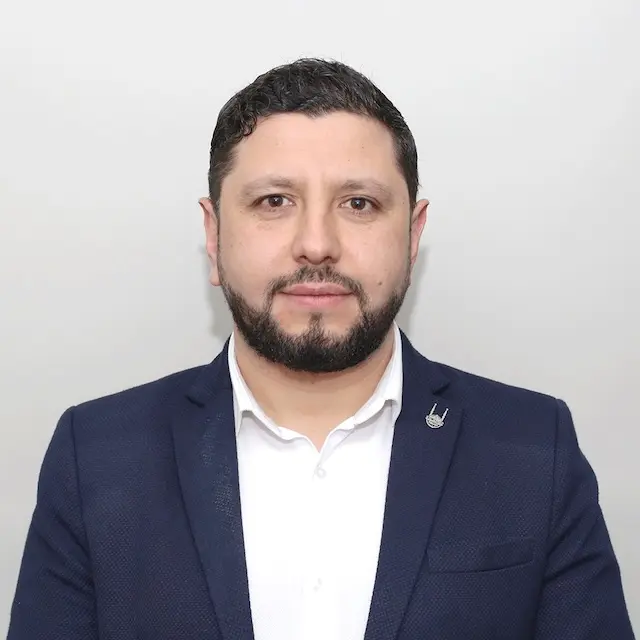
Zia Salik was appointed Interim Director of Islamic Relief UK in 2025, and brings with him over 18 years of third sector experience. He has held several leadership roles within Islamic Relief UK, including National Events Coordinator, National Community Fundraising Manager, Head of Fundraising, and Deputy Director. Zia has led national fundraising strategies, managed large-scale campaigns and events, and contributed significantly to volunteer development, donor engagement and public outreach.
As Interim Director, Zia oversees multiple teams and contributes to strategic planning, operational leadership and organisational growth. He is recognised for his expertise in major donor management, public speaking, media engagement and community fundraising. Zia has been instrumental in building strong community networks and delivering impactful campaigns.
Before joining Islamic Relief, Zia served as Programmes Manager at Humber All Nations Alliance, where he led organisational growth, project delivery and funding proposals.
Zia is a seasoned leader committed to social justice, who brings a collaborative, mission-driven approach to his work, helping to amplify voices and maximise impact in the charity sector.
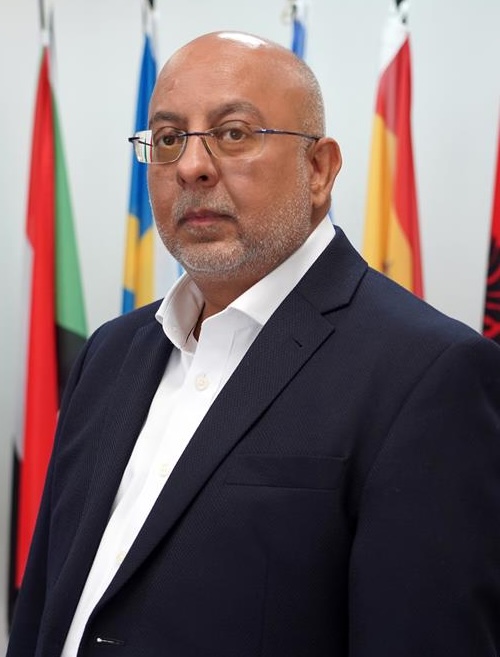
Nadeem has a wealth of experience from the charity, statutory and private sectors. He is the Managing Director of HAD (a division of IRW) which is a centre of excellence seeking to empower the humanitarian sector and maximise its effectiveness and from October 2025 will serve as our interim CEO.
Before joining Islamic Relief, for nearly a decade at the General Medical Council — a globally recognised professional regulator — Nadeem managed strategic relationships with Chief Medical Officers and senior leaders. Prior to that, he served as the UK Director of Islamic Help, engaging closely with many international non-governmental organisations and playing a key role in fundraising and media activities.
In 2000, Nadeem was admitted as a solicitor. He spent nearly 8 years as a Partner at a law firm specialising in employment, regulatory and charity law. He has published papers, including in the Modern Law Review, and chapters in books.
Nadeem is deeply committed to strengthening civil society organisations and the charity sector, and throughout his career has focused on improving foundations for future generations and building strong networks. Nadeem has particular expertise working in matters of Learning and Development, especially personal and professional development, combining Islamic principles with modern techniques and interventions. He is also especially interested in psychological perspectives and cognitive distortions. He has designed and delivered training to thousands of people for nearly 3 decades.
As well as individual development and growth, Nadeem has spent 20 years working with organisations to manage and lead people to improve outcomes and efficiencies. He is a Consultant Coach, qualified at ILM Level 5 in Effective Coaching and Mentoring and ILM Level 7 in Executive and Senior Leadership Coaching. He was Chair of the Independent Advisory Group for the Professional Standards Department of West Midlands Police for 4 years, where he was awarded recognition for his ‘Outstanding Work.’
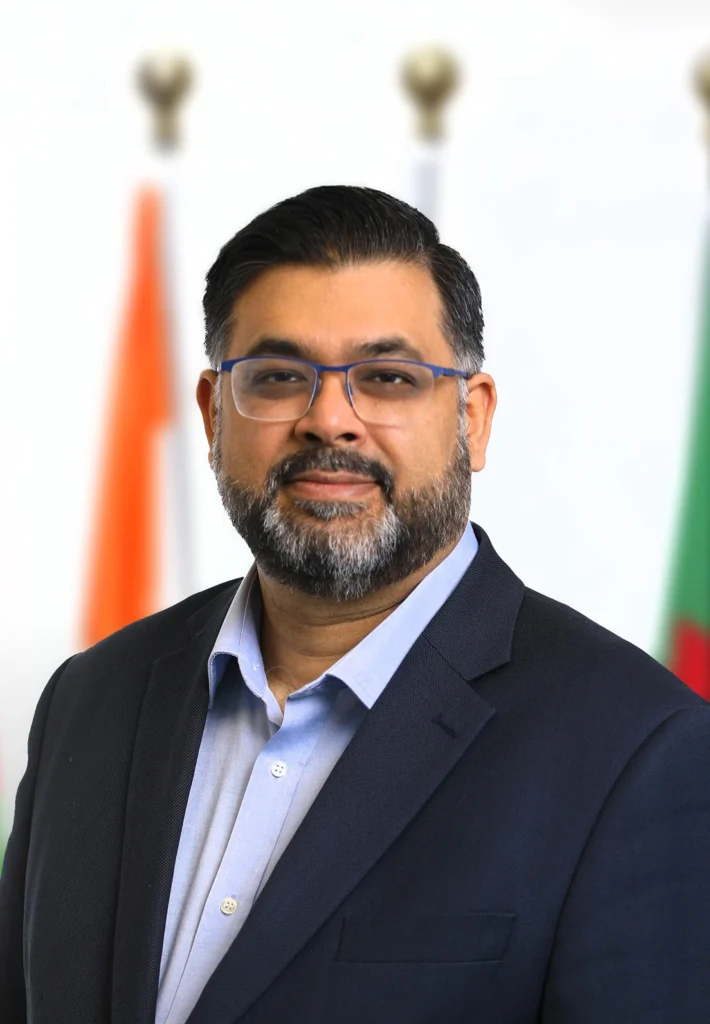
Saqeb Mueen
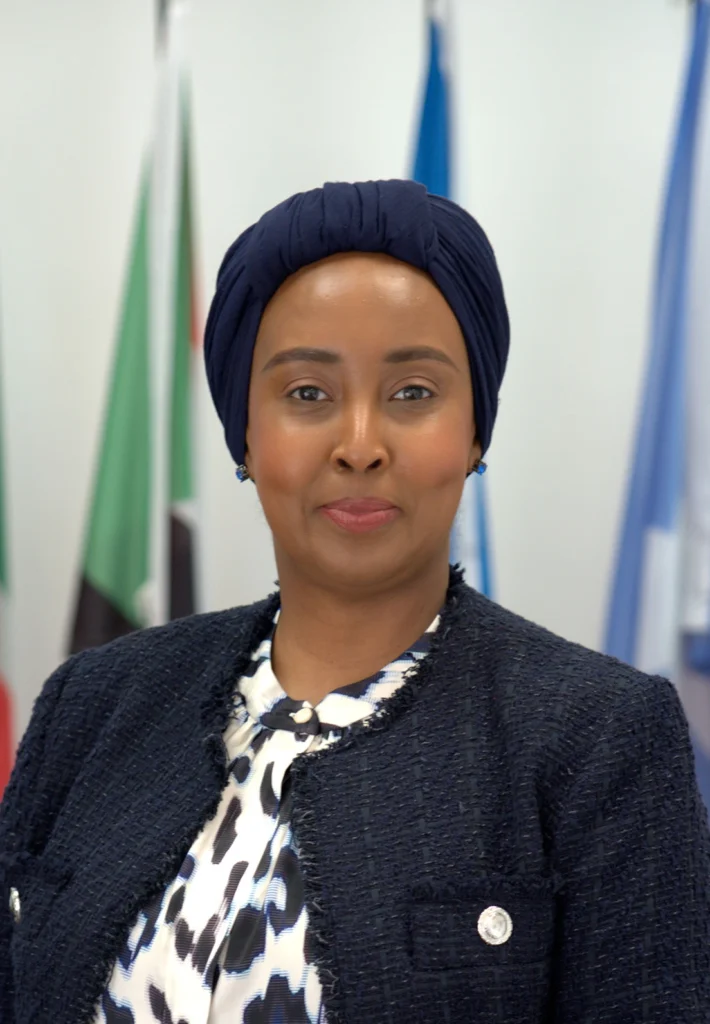
Asha joined Islamic Relief in 2025 with the aim of working with colleagues to create an environment where everyone feels valued, empowered, and motivated to contribute meaningfully to our shared mission.
Asha has more than 20 years of experience in HR leadership across a range of industries, holding roles at Thomson Reuters, BMW, Movado Group and others. She is passionate about building strong, resilient teams and fostering positive workplace cultures where individuals are empowered to thrive, contribute and do their best work.
Asha holds a BA in Management, Economics and Law, as well as a BA in Business Studies. She is an Associate Member of the Chartered Institute of Personnel Development.

Adnan joined Islamic Relief in 2004 as a regional fundraiser in the UK. He worked in multiple roles over 10 years at Islamic Relief UK, including setting up the first digital team and leading the growth of digital fundraising and engagement. Adnan also led numerous fundraising and marketing campaigns, which played a significant part in the growth of Islamic Relief UK.
Having moved to Islamic Relief Worldwide in 2014, Adnan has held different roles that have helped grow Islamic Relief’s global digital footprint into new geographic territories, supporting Islamic Relief members with their digital and marketing growth as well as developing new products and initiatives for the Islamic Relief family.
Adnan graduated in Industrial Design and Technology from Loughborough University. He has since completed an Advanced Diploma in Business Administration from Durham University and a Diploma in Digital Marketing from the Institute of Data and Marketing.

Nadeem Azhar
Nadeem joined Islamic Relief Worldwide in September 2022. He has worked in the charitable sector for over a decade.
He studied Modern History and Politics at Manchester University, and at the University of Law in London before qualifying as a solicitor in 2011.
Nadeem is an experienced corporate, commercial and governance lawyer, having worked with various faith-based and grant making charities as well those in health and education settings. He was a partner at a law firm in London before moving in-house where he focused on setting up and restructuring charities and social enterprises.
Most recently, Nadeem was Lead Counsel at Mind, a leading mental health charity, where he co-authored a new federation agreement, revamped legal processes, and played a major role in developing its strategic and fundraising partnerships.
Nadeem has been a charity trustee for the Seafarers Charity, as well as many grant-making bodies and theatre companies.
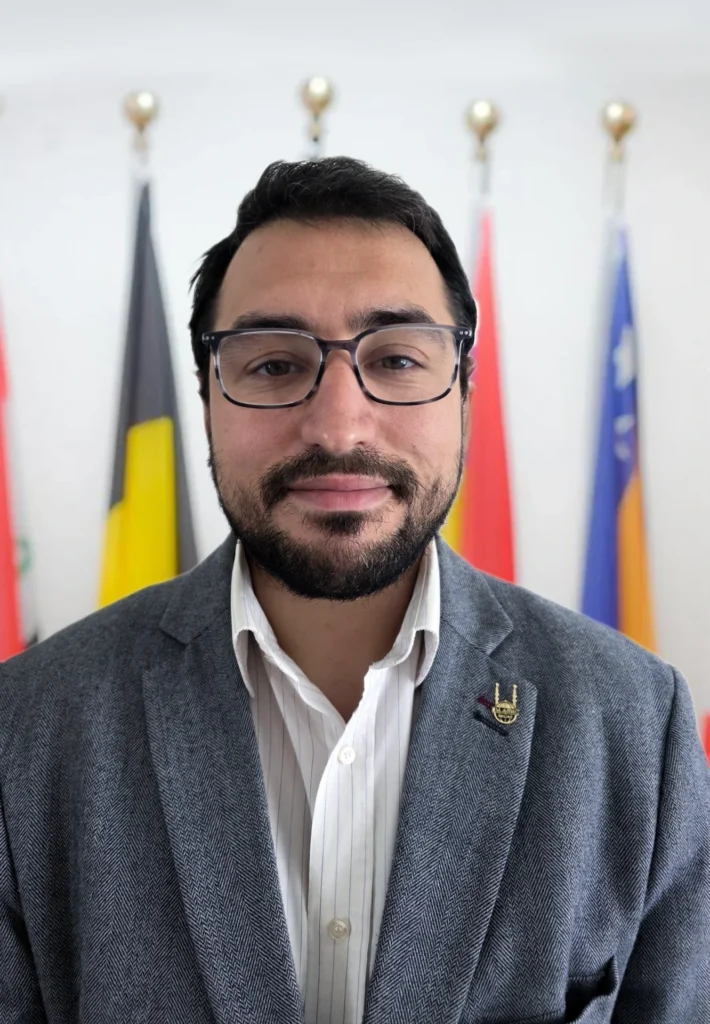
Salaheddin joined Islamic Relief UK in 2006 and over the next 7 years held multiple roles, including Community Fundraiser and Campaigns Manager, before joining Islamic Relief Worldwide in 2013.
Since then, Salaheddin has been instrumental in the launch and growth of new Islamic Relief member offices in Ireland, Spain, Norway and Finland, as well as providing essential support and guidance to existing members, including Italy, where he served as CEO for 3 years.
In 2023, Salaheddin became Deputy Director of Global Family Development and in this role has continued to play a crucial part in steering Islamic Relief’s growth and expansion. He has also led global fundraising and media engagement for major emergencies including the Türkiye-Syria earthquake and Libya floods. Salaheddin became the Interim Director of Global Family Development in 2025.
Salaheddin holds a master’s degree in International Development and is actively involved in several community-led initiatives. He is currently the Vice President of the International Union of Muslim Scouts and Deputy Chair of the UK Muslim Scouts Fellowship as well as Chair of the South Birmingham Muslim Community Association.




Martin Cottingham joined Islamic Relief in 2012 as IRUK Media Relations Manager, and was appointed Head of Communications in 2015 before taking up his current position as Director of External Relations and Advocacy for Islamic Relief Worldwide.
Martin has helped Islamic Relief to increase its mainstream media profile and expand its campaigning work, producing hard-hitting advocacy reports on floods in Pakistan (2011) famine in Somalia (2012) disaster risk reduction (2013) and aid to Afghanistan (2014). He has over 20 years’ experience working in media, communications and marketing roles for international development and environmental charities.
Martin graduated from the University of London with a degree in English and Drama (1982-85) then trained as a journalist with a postgraduate diploma at City University (1986-87). He has previously worked for Christian Aid as Editor of Christian Aid News and Media Relations Manager (1988-97) for Oxfam as Regional Campaigns Manager (1997-2000) and at the Soil Association as Marketing Director (2001-2006), as well as working for a wide range of organisations as a freelance writer, researcher and communications consultant.


Waseem Ahmad joined the Islamic Relief family over 24 years ago, serving as Programme Officer in the Balochistan province of south-western Pakistan before becoming Head of Programmes in Pakistan. Waseem then moved to Oxfam and Tearfund before returning to Islamic Relief to establish our mission in Malawi. Later serving as Head of Programme Funding and Partnerships, Waseem led the response to major crises across the globe, including the East Africa drought, Pakistan earthquake and the Indian Ocean Tsunami.
Waseem then served for nearly 6 years as our Director of International Programmes, during which time the charity secured and retained the coveted Core Humanitarian Standard certification in recognition of the quality of our programming. He was appointed CEO of Islamic Relief in May 2021.
With a special interest in community mobilisation and infrastructure, Waseem received an MSc in Project Planning and Management from the University of Bradford, as well as an MSc in Economics from Arid Agriculture University in Rawalpindi, Pakistan.
Waseem has also worked for Lepra Health in Action and is a member of the International Civil Society Centre’s Board of Trustees. The father-of-3 enjoys walking and playing football, and is a keen birdwatcher.
